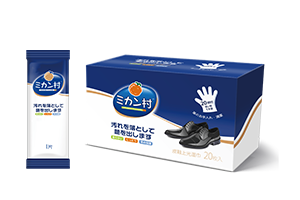Eco-friendly alternatives to wet wipes

The facts about wet wipes
The use of wet wipes has become more popular, with a range of styles available including eye make-up removers, baby wipes and 'toilet' wipes. But incorrect labelling and marketing of wet wipes as 'flushable' has resulted in serious plumbing issues by contributing to 'fatbergs' – congealed lumps of fat, sanitary items, wet wipes and so on. Wet wipes don't disintegrate like toilet paper when flushed. They typically contain plastic so, once they reach the sea, they last for a long time, causing havoc with marine life.
The good news about wet wipes
We know not to flush!
Fatbergs in our sewers can easily be avoided if we dispose of items like wet wipes in our kerbside rubbish bin. That said, do you really need all of those wet wipes? Or could you use alternatives such as recycled toilet paper and face washers?
What about 'biodegradable' wet wipes?
Wet wipes do not degrade during a flush or break down by the time they reach the sewer infrastructure. When the wet wipes make their way into the ocean, they get ingested by sea creatures, such as turtles, who mistake them for jellyfish and eventually die. Even if you don't flush your wet wipes, they end up in landfill. A far better option is to avoid using wet wipes in the first place.
What you can do about wet wipes
Say no to wet wipes
Do you really need all of those wet wipes or could you use alternatives such as recycled toilet paper and cloths?
Use recycled toilet paper instead
Support paper recycling and minimise landfill by using recycled toilet paper instead of falsely labelled 'toilet wipes'. Unlike wet wipes, toilet paper disintegrates.
Use cloth wipes
Washable cloth baby-wipes are now readily available and offer a chemical free alternative to wet wipes. Alternatively, you can make your own, or use face washers, your choice of soap and essential oils.
Don't flush!
If you must use wet wipes instead of toilet paper, make sure that you dispose of them in the rubbish bin rather than in your toilet. Aside from the risk to our oceans, waterways and wildlife, it is estimated that Australian water utilities spend $15 million each year removing wet wipes from sewage treatment plants and pumping stations. Households can face plumbing bills in the thousands of dollars.







